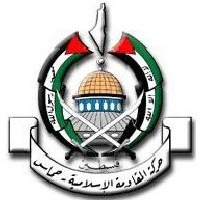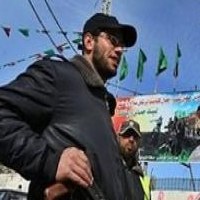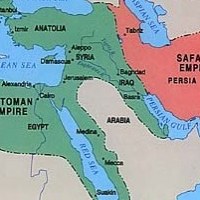![]()
Tue, Feb 01, 2011 | WikiLeaks
WikiLeaks: Suleiman Vows to Fight Radicalism
During an April 21 meeting with Chairman of the Joint Chiefs of Staff Admiral Michael Mullen, Egyptian General Intelligence Service Chief Omar Soliman explained that his overarching regional goal was combating radicalism, especially in Gaza, Iran, and Sudan.
Source: WikiLeaks
2009-04-30 T15:00:00
S E C R E T SECTION 01 OF 02 CAIRO 000746
NOFORN SIPDIS
E.O. 12958: DECL: 04/26/2019 TAGS: PREL, MASS, MOPS, PARM, KPAL, IS, IR, SO, EG, SU
SUBJECT: ADMIRAL MULLEN’S MEETING WITH EGIS CHIEF SOLIMANClassified By: Ambassador Margaret Scobey per 1.4 (b) and (d).
1. Key Points:
– (S/NF) During an April 21 meeting with Chairman of the Joint Chiefs of Staff Admiral Michael Mullen, Egyptian General Intelligence Service Chief Omar Soliman explained that his overarching regional goal was combating radicalism, especially in Gaza, Iran, and Sudan.
– (S/NF) On Gaza, Soliman said Egypt must “confront” Iranian attempts to smuggle arms to Gaza and “stop” arms smuggling through Egyptian territory.
– (S/NF) Soliman shared his vision on Palestinian reconciliation and bringing the Palestinian Authority back to Gaza, saying “a Gaza in the hands of radicals will never be calm.”
– (S/NF) On Iran, Soliman said Egypt was “succeeding” in preventing Iran from funneling financial support to Hamas through Egypt. Soliman hoped that the U.S. could encourage Iran to abandon its nuclear ambitions and stop interfering in regional affairs, but cautioned that Iran “must pay a price” for its actions.
– (S/NF) Egypt is “very concerned” with stability in Sudan, Soliman said, and was focusing efforts on convincing the Chadean and Sudanese presidents to stop supporting each others’ insurgencies, supporting negotiations between factions in Darfur, and implementing the Comprehensive Peace Agreement (CPA). “Egypt does not want a divided Sudan,” Soliman stressed.
—-
Gaza
—-
2. (S/NF) Soliman said radicalism was the “backbone” of regional security threats, adding that radicalism in Gaza posed a particularly serious threat to Egyptian national security. Soliman said Egypt must “confront” Iranian attempts to smuggle arms to Gaza and stop arms smuggling through Egyptian territory. “Egypt is circled by radicalism,” he continued, expressing concern over instability in Sudan and Somalia as well. Egypt’s own successful campaign against radicalism in the 1990s provided a useful lesson in how to counteract extremist groups by reducing their ability to operate and raise funds, in additional to educating people on the dangers of extremism. Soliman noted that only the Muslim Brotherhood remained and the Egyptian government continued to “make it difficult” for them to operate.
3. (S/NF) “We do not want incidents like Gaza to inflame public anger,” Soliman said, adding that the Gaza conflict put “moderate (Arab) regimes” in a corner. To prevent another outbreak of violence, Egypt is focusing on Palestinian reconciliation and a durable cease-fire between Hamas and Israel. On reconciliation, Soliman explained, the ultimate goal was to return the Palestinian Authority to Gaza, as “Gaza in the hands of radicals will never be calm.” The problem, however, is that the PA cannot return to Gaza without Hamas’ acquiescence. Soliman said the PA must return before the January 2010 Palestinian elections, or else Gazans would be afraid to vote for moderates.
4. (S/NF) Stability in Gaza also depends on giving people a more “normal” life, Soliman continued, saying Israel must be convinced to regularly open the border crossings for legitimate commercial activity. The current system – where Egypt informs Israel of a humanitarian shipment and Israel waits two days before accepting or rejecting the shipment for transfer to Gaza – does not adequately meet people’s needs.
5. (S/NF) On Palestinian reconciliation, Soliman said he expected the factions to return to Egypt on April 26 to discuss his proposal on establishing a high committee comprised of the various factions. The committee would be responsible for preparing for the January 2010 elections, monitoring reconstruction, and reforming the security services in Gaza. On reconstruction, the committee would issue licenses for companies eligible to participate on projects, but the PA would decide who receives the money for private and government contracts. Arab governments would assist with reforming the security services and could base security assistance out of Egypt. Soliman doubted that Hamas would agree to the high committee, but said it was important
CAIRO 00000746 002 OF 002
to keep Hamas and Fatah talking, so they would not resort to violence.
———————–
Iran, Counter Smuggling
———————–
6. (S/NF) Iran is “very active in Egypt,” Soliman said. Iranian financial support to Hamas amounted to $25 million a month, but he said Egypt was “succeeding” in preventing financial support from entering Gaza through Egypt. Iran has tried several times to pay the salaries for the al-Qassam Battalions, but Egypt had succeeded in preventing the money from reaching Gaza. Soliman said the Egyptian government had arrested a “big Hezbollah cell,” which was Hezbollah’s first attempt to stand up a cell within Egypt. Iran was also trying to recruit support from the Sinai Bedouins, he claimed, in order to facilitate arms smuggling to Gaza. So far, he continued, Egypt had successfully stopped Hamas from rearming. Soliman noted that in six months, MOD will have completed the construction of a subterranean steel wall along the Egypt-Gaza border to prevent smuggling. He warned, however, that people will find an alternative to the tunnels to smuggle arms, goods, people, and money. Admiral Mullen expressed appreciation for Egypt’s efforts to combat smuggling, adding that he hoped Egypt felt comfortable enough to ask for additional border security assistance at any time.
7. (S/NF) Egypt has “started a confrontation with Hezbollah and Iran,” Soliman stressed, and “we will not allow Iran to operate in Egypt.” Soliman said Egypt had sent a clear message to Iran that if they interfere in Egypt, Egypt will interfere in Iran, adding that EGIS had already begun recruiting agents in Iraq and Syria. Soliman hoped the U.S. would “not walk the same track as the Europeans” in regards to negotiating with Iran and warned against only focusing on one issue at time, like Iran’s nuclear weapons program. Iran must “pay the price” for its actions and not be allowed to interfere in regional affairs. “If you want Egypt to cooperate with you on Iran, we will,” Soliman added, “it would take a big burden off our shoulders.”
—–
Sudan
—–
8. (S/NF) Egypt is very concerned with stability in Sudan, Soliman said, but asked for the U.S. to be “patient” with the Sudanese government and give Egypt time to help the Sudanese government deal with its problems. He applauded the appointment of Special Envoy Gration and recent U.S. statements on Sudan. Soliman said Egypt was focused on three areas for promoting stability in Sudan: 1) repairing the relationship between Chadean President Deby and Sudanese President Bashir and stopping their support for each others’ insurgencies 2) supporting negotiations between the various factions in Darfur, and 3) implementing the CPA. Soliman encouraged a larger role for French President Sarkozy in mediating between Chad and Sudan. He said that Southern Sudan “feels no benefits from unity,” and Egypt is trying to bridge the “physiological gap” between north and south itself by providing humanitarian assistance. “Egypt does not want a divided Sudan,” he stressed. Admiral Mullen replied that Egypt’s leadership on Sudan was critical and looked forward to increased cooperation between Egypt and Special Envoy Gration.
——————
Piracy and Somalia
——————
9. (S/NF) Admiral Mullen stressed that piracy was an international crime that needed an international solution, especially on support for trying captured pirates. The U.S. did not want Somalia to become the next safe haven for al-Qaeda after Pakistan, he stressed. Soliman replied that there were not enough ships in the region to provide adequate security against pirate attacks and recommended that the international community, through the UN Security Council, focus counter piracy efforts on the Somali shore.
10. (U) Admiral Mullen did not have the opportunity to clear before his departure. SCOBEY



 RSS
RSS












#WikiLeaks: #Suleiman Vows to Fight #Radicalism | #Egypt #US #Hamas #Gaza #Iran #Sudan http://j.mp/e1PZqV
#WikiLeaks: #Suleiman Vows to Fight #Radicalism | #Egypt #US #Hamas #Gaza #Iran #Sudan http://j.mp/e1PZqV http://ff.im/xeciI
RT @CrethiPlethi: #WikiLeaks: #Suleiman Vows to Fight #Radicalism | #Egypt #US #Hamas #Gaza #Iran #Sudan http://j.mp/e1PZqV
RT @CrethiPlethi: #WikiLeaks: #Suleiman Vows to Fight #Radicalism | #Egypt #US #Hamas #Gaza #Iran #Sudan http://j.mp/e1PZqV http://ff.im …
RT @CrethiPlethi: #WikiLeaks: #Suleiman Vows to Fight #Radicalism | #Egypt #US #Hamas #Gaza #Iran #Sudan http://j.mp/e1PZqV http://ff.im …
RT @CrethiPlethi: #WikiLeaks: #Suleiman Vows to Fight #Radicalism | #Egypt #US #Hamas #Gaza #Iran #Sudan http://j.mp/e1PZqV http://ff.im …